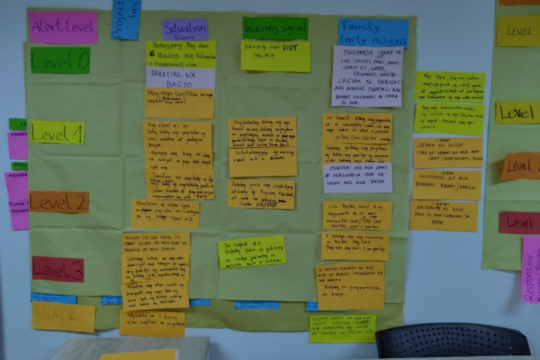Business Continuity Management (BCM) is an integral part of successful businesses and enterprises in increasing their competitiveness, product value chain, inclusiveness and environment sustainability. Sri Lanka Preparedness Partnership (SLPP) has initiated a massive exercise of conducting BCM trainings for SMEs in Sri Lanka. The trainings aimed at building awareness about disasters among small enterprises, would cover important aspects of business impact analysis in identifying potential threats, continuity strategy, standards and regulatory framework governing the private sector. For most participants, the entire experience was new and refreshing due to no prior knowledge in business resilience concepts.

Conducted primarily in 3 districts of Kalutara, Kegalle and Batticaloa, the trainings spanned divisions of Mathugama, Bulathsinghala, Agalawatha, Bandaragama across the country from 4 – 28 June, 2019. The Bulathsinghala area in Kalutara disctrict gets flooded during the season which resulted in participants actively engaging in the training. Particularly interesting topics were on the importance of planning in making sure businesses continue and resume operations after a disaster, adopting BCP as a preparedness tool for their organisations. Batticalao district is severely affected by multitude of disasters specifically floods, drought and cyclones. It was also ruthlessly hit by tsumani in 2004. The business community was hugely impacted in the absence of any recovery plan to recover from losses after the disaster.
Ceylon Chamber of Commerce and Janathakshan as part of SLPP and ADPC conceptualized the training exercise under the overall roadmap of APP. The trainings have been structured in a manner to identify and tackle the root causes of resilience plaguing the SME sector in the country. Overall, SLPP reached out to 480 individuals and SMEs through these well planned BCM training exercises, who would further propagate and disseminate the message across other enterprises and private institutions.



